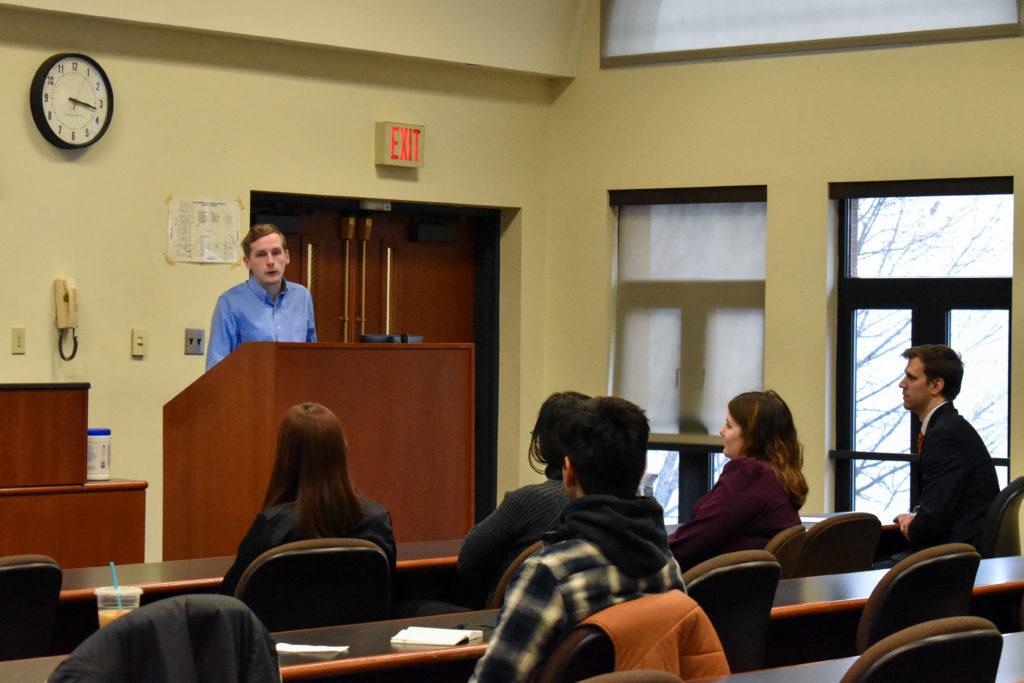The Student Bar Association’s top leaders presented their “State of the School” report Thursday, summarizing the association’s accomplishments over the last semester and announcing plans for this semester.
Up to the time of the address, the SBA approved two new student organizations and approved 10 funding requests last semester. Despite a smaller budget, the SBA allotted each student organization in the law school the same or a greater amount of funding as they did last year through cutting the executive branch’s budget.
SBA Senator John Tuley, the chair of the finance committee, said in his report that this year’s budget of about $144,000 declined from last year’s, which totaled about $297,651. The University reduced the Student Association’s and the SBA’s budget to create the University-Wide Programs Fund, which supports large University events.
“This year’s budget is not that, or anywhere close,” he said. “And so we kind of already started off on the back foot.”
Tuley said of the $30,000 the SBA set aside for last-minute student requests, they only spent about $6,160, leaving $23,840 for this semester. He said student organizations tend to request more last-minute funding in the spring semester.
Tuley said he and SBA Executive President Nicole Karem discussed potential new ways to address student funding requests for attending conferences, like the University sponsoring conference attendance for graduate students both within and outside the law school. The Senate approved conference spending for three student groups last semester, helping send a total of 16 students.
“It’s a lot of burden to put on us to decide which of our peers is more ‘worthy’ of receiving funding than others,” he said.
Both New York University and Florida State University provide grants for graduate students to attend conferences.
The Senate approved the formation of the Tech Law Students Association Blog in September, and they approved the formation of the Consumer Law Association in their meeting earlier this month. The Consumer Law Association will discuss the relationship between consumerism and law, according to its constitution.
Sydney Blitman, chief of staff of the executive team, said GW’s Department of Financial Services is launching a housing connection app for law students to beta test. The app will connect potential roommates and show users housing opportunities that have been vetted by the University in a partnership with housing companies and development companies in the D.C. area.
SBA Executive Vice President Garrett May said the executive branch did not veto any of the bills the Senate passed this year, a change from last year.
Former SBA President Jordan Michel vetoed the Student Organization Bylaw Reorganization Act three times last year, and he vetoed the Community Town Hall Act twice. Michel vetoed two other bills last year.
He said the Senate’s Rules and Constitution Committee plans to create a transfer of power clause this semester would require the sitting president and executive vice president to communicate with their successors to ease the transition between leaders. He said the committee hopes to increase participation in the election, which will occur in late March or early April.
“We want to make sure that there is a lot of interest in the soon-to-be-vacated seats that we have,” May said.








